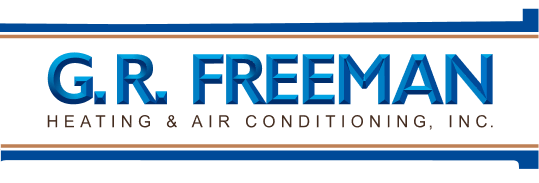Deciding to upgrade your house’s HVAC system is a big step toward a more comfortable home, lower energy bills and a higher property value. Nevertheless, many homeowners find the significant upfront costs to be overwhelming. Fortunately, you can get the most out of your money by learning about your financing choices and then making a well-informed selection. Here are eight things every homeowner should know when trying to secure financing for a new HVAC system.
1. Understanding the Cost Differences of Different Types of HVAC Systems
If you want to know how much you need to finance, including installation charges, it’s important to know the pricing disparities between traditional HVAC systems and ductless versions. This is crucial to being able to weigh the upfront expenditures against the energy savings you’ll get in the long run. You can use this information to choose the system that is most suitable for your home and budget. There may be rebates, tax advantages or financing alternatives available to you that are system-specific, and this can affect your eligibility for those.
The initial expense of a traditional HVAC system is usually lower than that of a ductless system, but the installation cost could be greater depending on how much ductwork your home needs. This is because this type of system uses a network of ducts to move air throughout your home. These systems are best suited for larger houses or those with preexisting ductwork.
Ductless systems may be more expensive initially, but their energy efficiency and reduced maintenance requirements can make them a better long-term investment. Dwellings without existing ductwork and smaller homes benefit greatly from ductless systems.
2. Researching Financing Options
When it comes to HVAC upgrades, there are several financing alternatives to choose from. Personal loans, home equity loans, credit cards and financing from HVAC companies are all examples of this. There are a number of factors to consider, including interest rates, payback periods and eligibility requirements, before settling on a course of action. When evaluating these possibilities, make sure to consider things like your credit score, the amount you need and the payback period you desire.
3. Comparing Loans vs. Grants
Installing energy-efficient HVAC systems may qualify you for a grant even though loans are more frequent. If you qualify, a grant can be a good choice because it doesn’t require repayment. However, there is usually a lack of money and stringent requirements for who can apply. You can get the most out of your money by looking into grant programs at the federal, state and local levels and comparing them to lending possibilities.
4. Government and Utility Rebates
The installation of more energy-efficient HVAC systems is sometimes eligible for incentives from both the government and utility companies. With these incentives, you can significantly lower your out-of-pocket expenses or the amount you need to finance. To find out what rebates are available in your region, contact your local utility company or look them up online by visiting the Database of State Incentives for Renewables and Efficiency (DSIRE). Remember to keep these refunds in mind when you create your long-term budget for the upgrade.
5. Understanding Tax Incentives
You may be able to get some of the money you need to pay back for your update through tax credits or deductions. To learn about the current tax advantages and how to claim them correctly, it’s a good idea to do some research and talk to a tax expert.
6. Negotiating With HVAC Contractors
The best way to negotiate with contractors for a lower price is to get multiple quotations. Find out whether there are any deals for paying with cash or installing during the off-season. In addition to standard loan alternatives, some contractors may provide financing plans that are more affordable.
7. Reading and Understanding Contracts
Read the contract or financing agreement with an HVAC contractor carefully. Don’t sign before getting answers to any questions you may have about the terms and conditions. Keep in mind the overall cost of the loan throughout its lifetime as well as the interest rate, repayment period and fees for paying it off early. Feel free to see a financial expert or ask questions if you have any concerns.
8. Long-Term Maintenance and Warranty Considerations
When you budget for the upgrade, consider how much it will cost to maintain your new HVAC system over the years. Some HVAC financing alternatives come with maintenance plans or extended warranties. These might increase your total cost or monthly payment, but they can also reduce stress and save money in the long run.
G. R. Freeman Heating & Air Conditioning, Inc. is the company to call when you need financing for an HVAC upgrade. We offer a variety of heating, cooling and air quality services in Evansville, IN. We also offer ductwork cleaning, zoning upgrades, carbon monoxide detection and commercial work. Call us today to learn more about accessing the financing you need to upgrade the HVAC system in your home.








